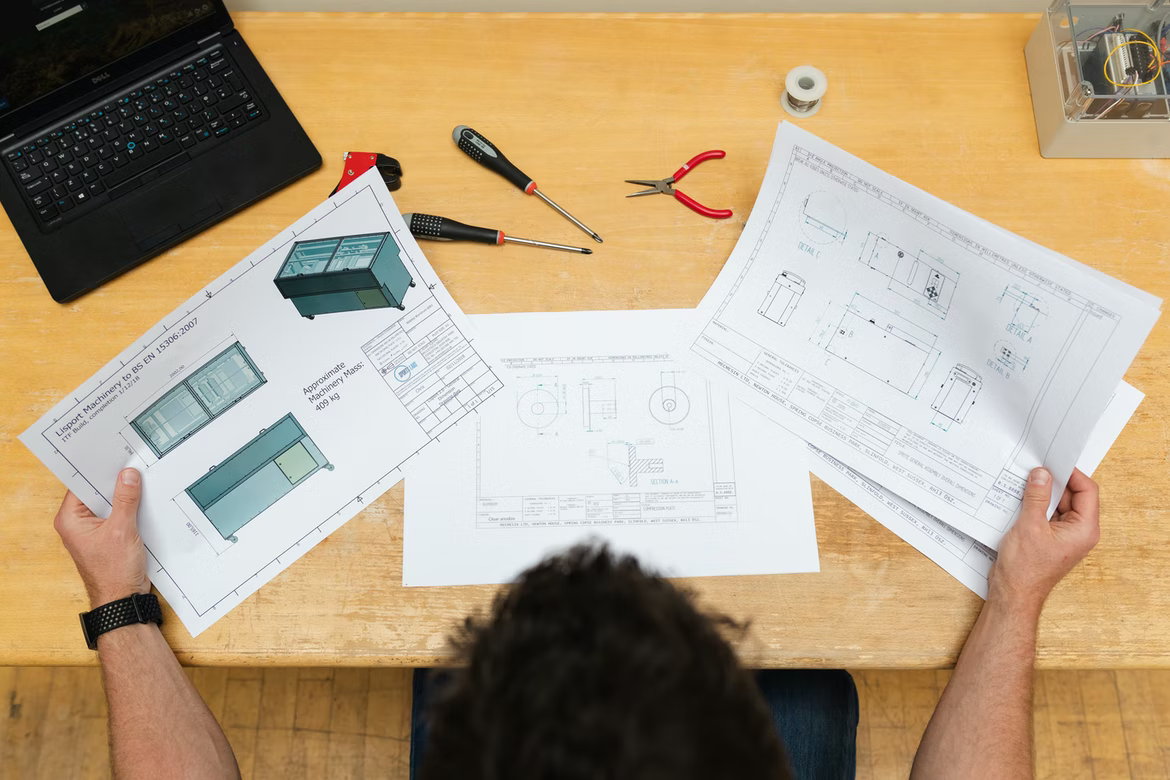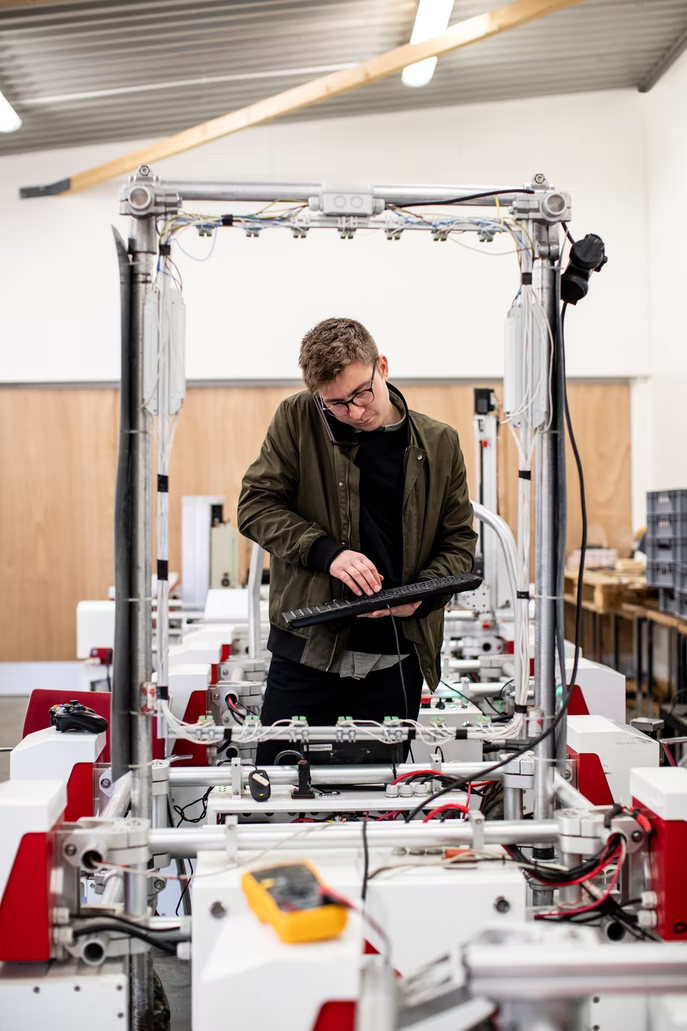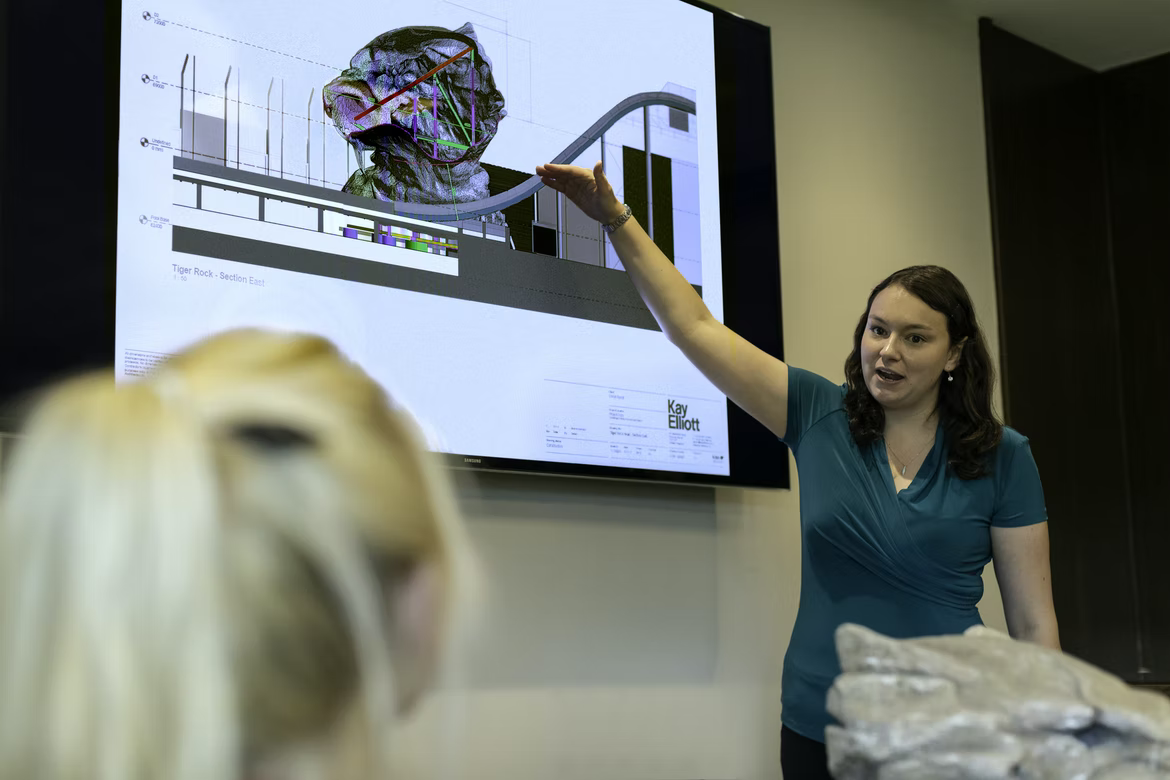The Product Engineer Of The 21st Century
The product development process is often long and requires the expertise of different individuals. It takes significant planning, technical evaluations and concept verifications before converting an idea into a working product.
The development cycle involves intense market research, iterative decision-making and a myriad of innovations and invention design. It implies that every company working on futuristic hardware or software products must engage individuals with strong technical skills.
For the product to succeed in the market, companies or independent innovators should liaise with a product engineer. The complexity of the development project will determine whether to work with an experienced engineer or an entry-level individual. Either way, the product engineer will be responsible for optimizing the physical features of products for manufacture or functionalities of software products to address particular user needs.
The engineer acts as a bridge between the innovator and the customer. They facilitate mutual relationships between companies and their target markets. These engineers solve predominant customer problems and devise strategies to ensure the final product meets the organization’s business strategy. They also work on delightful consumer products and unlock new business opportunities through advanced product designs, quality control and proactive market research.
Let us take a close look at the modern-day product engineer. What skills should they possess? How do they fit into different product development processes, and does the job market for this profession look?
Who is a product engineer?
The term will mean different things for different companies. In an industrial design company, it will be a position in the research and development department. In this context, the product engineer is often a professional mechanical engineer. The individual specializes in designing new products while paying close attention to the appropriate manufacturing techniques. They convert ideas and concepts into realistic 3D models using design CAD software. They participate in prototype design and test the quality of product models before releasing them to consumer markets. The product engineer needs a strong understanding of CAM software critical for rapid prototyping and early product testing.

The product engineer creates 3D plans for proposed consumer products
In this role, the product engineer selects appropriate manufacturing processes and conducts a feasibility study to estimate the actual cost of production. The engineer works with a tight budget and has to accommodate all the interests and feedback of the potential customers. While designing products, they must adhere to market segment specifications and incorporate safety features on proposed consumer products.
A software product engineer participates in all stages of development. They influence product creation, design and development, testing and launch. The engineer focuses on delivering functional software products that meet specific user needs. These engineers require strong IT skills, with the technical capability to analyze diverse software solutions, mobile apps, web products or enterprise resource systems. Technically, the engineer checks the quality and functionality of the final product. The longevity of a software product depends on its usability and functionality. It is the engineer who works on subsequent upgrades to guarantee the stability and competitiveness of the product post-launch.
When applying for a product engineer job, you must evaluate the job descriptions. The job overview will give you an idea of how to structure the cover letters and resumes. At the moment, some skilled individuals have mastered hardware and software development.
Requisite skills and desirable traits of a product engineer
A product engineer is a holistic individual. They interact with project managers, members of the corporate office and external stakeholders. The product engineer requires more than technical skills. They are natural problem solvers. Here are some soft skills that the product engineer needs to deliver on their mandate.
Strong communication skills
The product engineer needs strong communication skills. They explain concepts to individuals with different skill sets. It could be describing how a manufacturing process works best to a team of non-technical staff or a breakdown of production costs to the finance department. Irrespective of the audience, the engineer has to explain concepts simply. They require good verbal and written communication skills. It ensures they can package complex information into easy-to-understand presentations, charts or written documents. They should be aware of slang and jargon among different departments working on the new product. The product engineer bridges the gap between technical teams and the strategists (marketing and sales).
Advanced problem-solving skills
The product development cycle is a repetitive, continuous improvement process. There is an iteration of design processes, analysis of existing and emerging development challenges and a myriad of activities that require prioritization. These sound like simple activities. In reality, they are complex. They can impact the career development of an entry-level product engineer. The engineer needs to be a natural problem-solver. They encounter fresh challenges every day and should be ready to prioritize each to avoid derailing the entire development team.
The engineer should think outside the box and possess an “I can do” attitude. It ensures that the engineer focuses on practical ideas and leverages innovation to speed up the development process.
Customer-focused approach and empathy
Developing new consumer products requires a desirable level of user empathy. The industrial design company enjoys better market success if its design strategy is customer-centric. When the product engineer empathizes with the user, they understand the challenges the customers face. That way, they develop products that address these challenges in their entirety.
Strong interest in research and data
Consumer markets are dynamic. What an innovator offers today could be obsolete in a matter of days. That requires the engineer to be proactive at all stages of development. It does not matter whether the engineer has a bachelor’s or master’s degree. They must be proactive at any point in the product development cycle. Part of the product engineer job description is conducting research and drawing insights from data. The engineer evaluates the product idea presented to them and combines their technical skills and available research data to initiate subsequent design processes. Once you choose a career path in product development, be ready to flex your mind and indulge in conclusive user research, data organization and storage.

Engineer build and test new products before releasing them to consumers
Strong technical skills
A product engineer is an informed individual with diverse skills. They have a reputable knowledge base around emerging consumer trends, advanced manufacturing technologies, strong understanding of manufacturing processes and quality control measures for software and hardware products. They should also be aware of engineering best practices. That way, they will understand how trading off some aspects of manufacturing will impact the quality of the final product. The technical skills apply to design, management, rapid prototyping and manufacturing.
A curious mind and swift delivery
A product engineer requires a curious mind. The curiosity enables the engineer to ask questions and find solutions to different product development problems. They should look beyond working products and evaluate the pros and cons of adopted product development processes, estimate the durability of products and optimize the functionality of products through systematic life-cycle upgrades.
The product engineer is a pillar that holds the entire project. It implies that a delay by the engineer to verify product ideas or validate manufacturing processes will affect the operations of the whole product development team. They need to leverage their technical skills to ensure timely delivery of product development milestones and keep the entire project on course.
Acing your product engineering profession
Conducting a simple job search for a product engineer directs you to several job vacancies across the globe. The job postings contain detailed descriptions, skill requirements, duties and responsibilities that prospective candidates will perform. Product engineering is a profession with an attractive salary and an impressive career path. Companies embrace holistic product development teams to increase market competitiveness and deliver successful consumer products. The demand for all-rounded product engineers continues to rise. How can one kick start their career as a product engineering professional?
Complete a relevant bachelor’s degree
A career in product engineering begins when one studies and qualifies with a relevant bachelor’s degree. One must enroll in a four (or five) year degree study program. It can be a degree in mechanical engineering, product design, general engineering or quality engineering for a physical product development career. If you are considering the software side of things, join a university that offers a software engineering or IT-related undergraduate program.
Ensure that the majors offered by the university align with the requirements of the product development process. Ensure you master the basics of computer-aided design (CAD) and computer-aided manufacturing (CAM) software.
Gain industrial experience
After earning the bachelor’s degree, it is time to put the theory to practice. Create an attractive resume and cover letter to secure you an entry-level product engineering position in a busy environment. The entry-level position allows you to understand concepts around product development life cycles and exposes you to real-life challenges. A role as a quality control specialist can be beneficial in boosting your leadership roles.
The entry-level position offers an opportunity for individuals to utilize specialized design software and support senior product engineers to complete assigned duties.
Acquire industrial certifications
With a few years of experience, the product engineer builds personal confidence and gains sufficient technical skills. The engineer is fully aware of industry standards and emerging trends and can lead small teams to complete product development projects. At this point, the individual can apply for industrial certifications.
They allow product engineers to specialize in a particular product development niche. The engineer may choose to work towards acquiring certification in quality control, rapid prototyping or product design. These certifications indicate improved industrial performance and contribute to a higher pay scale.
Aim for senior product engineering positions
After acquiring professional certifications and appropriate technical skills, the engineer aims at senior product engineering positions. These are high-paying managerial roles, and the engineer takes charge of bigger teams, possibly working on multiple projects. When applying for senior job roles, write captivating resumes and cover letters. Ensure that the requisite skills are captured in your documents for easy perusal using Applicant Tracking Systems (ATS).
Additional Tip
Product engineers can enhance their technical skills and industry knowledge by enrolling in a relevant master’s degree. They can choose to specialize in a unique niche and excel at it.
Product Engineer Job Outlook
The demand for skilled product engineers has risen in the past few years. The trend will continue as customer-centric designs take center stage in different industrial design companies. Product engineers have proven critical when developing and streamlining lean software development practices and lean manufacturing strategies for hardware products. Companies enjoy shorter turnaround times and deliver products that provide real value to their customers. The Bureau of Labor and Statistics anticipates the demand for product engineers to increase by 5% annually until 2024.

Product engineering requires a lot of research and data collection to refine final products
When hiring, companies list specific academic qualifications that product engineers should have. The majority of companies (over 60%) require new hires to possess a minimum of a bachelor’s degree. Approximately 3% of employers looking for specialized product engineers require individuals with doctorate qualifications. Individuals with a bachelor’s degree, sufficient industrial exposure and relevant certifications are more likely to land a mid-level product engineering role. When applying for these engineering jobs, use a salary calculator to estimate monthly tax payments.
Average Salary
Companies remunerate their product engineers differently. Differences in pay scale are evident across states. On average, product engineers have an approximate annual salary of $88,000. Some companies pay as high as $700,000 per year to senior product engineers.
Final Thoughts
Every company aiming to disrupt product development processes must enlist the services of competent product engineers. They are a vital part of the creative team, working to create appealing, usable and durable consumer products. The engineers require strong technical skills to navigate design and development challenges. They should develop strong interpersonal skills to facilitate timely and precise communication with personnel from other departments and levels of management. The journey toward product engineering begins with acquiring a relevant bachelor’s degree. Afterward, the engineers gain sufficient technical experience and certifications to enable them to run complex product development projects.
The job market for product design specialists looks promising. Current engineers should enhance their technical skills and acquire more certifications to remain competitive and earn better salaries.
